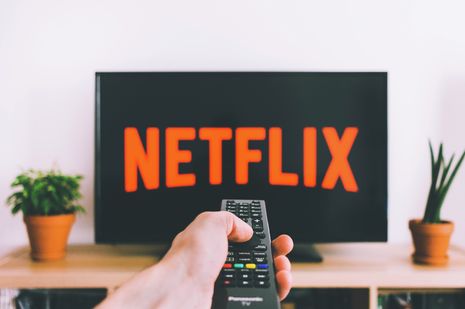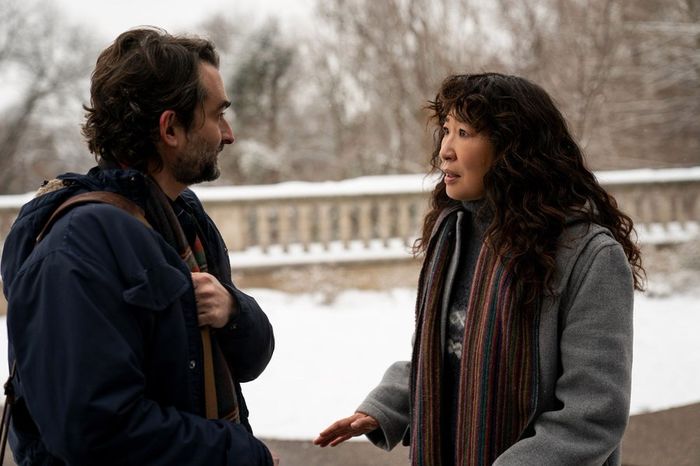Feminist women LOVE Joe Goldberg: Netflix’s You Season 3 review
In a thrilling review of season 3 of Netflix’s You , Lotte Brundle talks us through the controversial figure that is Joe Goldberg

Content Warning: ‘You’ depicts and discusses sensitive topics such as obsession, stalking and murder and as such, this article mentions these in reference to the show’s plot.
Spoilers for Season Three of You on Netflix
Season Three of You has been on Netflix for a while now and it is, as you might expect, an addictively ridiculous roller-coaster of completely unbelievable events which, when watching, you completely and entirely invest in. So, if you haven’t watched yet, get ready for an absurdly hot cast, slightly untenable plotlines, and genuine comic moments, alongside the ever-present and troubling intrusive thought: “Why am I so attracted to these literal murderers?” which, like Joe Goldberg, will not leave you alone…
Book lover and self-declared feminist, Joe Goldberg has self-anointed himself bringer of justice. Feel disgustingly voyeuristic as Netflix brings you the POV of Joe as he creeps on his new boss through his binoculars, steals his neighbour’s dirty underwear, and altogether pretty much completely violates the privacy of every woman he meets. But don’t forget, he’s hot and he likes books!
“They’ll do anything to not miss out jumping aboard the ‘woke’ wagon”
Some may argue that I am unfairly cruel about the hard-working professionals scribbling away in the Netflix writer’s room. The problem is: I love their shows. And it is because I enjoy gobbling up their terrible telly so much, that I feel some of the more deep-seated problems with their shows should not go unaddressed.
For far too long directors have been getting away with lazy sexism as they allow their camera lenses to carry out the role the male gaze performs in society. The tricky part now is that streaming giants such as Netflix have gotten wise to this, and in becoming self-aware they’re eager to show that they’re ‘not like other girls’; They’ll do anything to not miss out jumping aboard the ‘woke’ wagon and have started recognising some of the problems prevalent not only in TV but in our society. The issue then, is that they seem to be going about addressing these issues in strange ways.
For example, the season has an episode that discusses the question of vaccination in detail. Good start. As the episode progresses however, the plot seems to get lost in Netflix’s eagerness to show us, their captivated viewers, that they are anti-anti-vaxxers (!) The episode culminates with Joe’s wife, Love (yes – that is her genuine name) clobbering yet another of their neighbours over the head, as it is revealed to her that his choice to not vaccinate his children against measles has landed her young baby poorly and hospitalised. The question of vaccination is an important one, but it’s not simply discussed here, the pro-vaccine message is practically forced down our throats. Personally, I am pro-vaccination, but the dogmatic way the show pushed this message made me feel uncomfortable. The obvious allusion to the COVID-19 pandemic too was unnecessary and overdone.
The very same episode is titled ‘Missing White Woman Syndrome.’ There is a mention of race in this episode when the character Marianne comments on the intense media scrutiny of Natalie Engler’s disappearance, saying that, ‘Missing White Woman Syndrome is America’s favourite pastime next to porn.’
‘When upper-class attractive white ladies go missing, they get tons of media coverage. Doesn’t happen for other victims,’ Dante, another character, goes on to explain. Given that this episode’s title specifically mentions race, you’d think that this episode would go on to further unpick the racial problems present in Madre Linda, and by extent in our own world, but it doesn’t.
“The series then seems to have a golden opportunity to redeem itself in the final episode”
Bizarrely, not a lot of time in the episode is actually given to this – it’s more of a token mention – and this is the kind of trademark ‘tokenism’ that serves to make so many Netflix originals problematic. The writers are aware of these issues, and mention them, but don’t want to waste too much valuable screen time on themes that fall outside of the ‘TV norms.’ So, while in a way it is good that Netflix is bringing some of these issues to light, they seem to fling them to the side just as easily after they’ve served their use as a ‘clickable’ episode title.
The same rule applies to the show’s emphasis on feminism. Episode Two, for maybe the first real time, directly highlights the gendered hypocrisy at play in You. Love rightfully points out that although Joe and she are both murders, when he kills someone he considers it a noble act, but when she does he thinks she’s crazy. They are both impulsive, but You here recognises the fact that while impulse men are often seen simply as angry, women often become labelled as hysterical and unhinged. Of course, gender studies student and Love’s teenaged boy-toy, bit-on-the-side, and neighbour Theo would’ve been able to mansplain that to us, I’m sure!
The series then seems to have a golden opportunity to redeem itself in the final episode. In a dramatic showdown, Love sharpens a knife, fully intending to do away with her cheating husband, and for a brief instance I imagined a season three that ended with an actual plot twist: Love murdering Joe and getting revenge on all the women he has murdered and stalked, and Season Four following her new life. Predictably, however, it is Badgley’s character who survived. Netflix, although so close to turning things around, unfortunately, like Joe Goldberg, slipped right back into old patterns, continuing to murder perfectly good TV and leave me disappointed. Will I be watching Season Four, however? Yes. At the end of the day, I still fancy Joe Goldberg.
 News / Uni Scout and Guide Club affirms trans inclusion 12 December 2025
News / Uni Scout and Guide Club affirms trans inclusion 12 December 2025 News / Pembroke to convert listed office building into accom9 December 2025
News / Pembroke to convert listed office building into accom9 December 2025 News / Cambridge Vet School gets lifeline year to stay accredited28 November 2025
News / Cambridge Vet School gets lifeline year to stay accredited28 November 2025 Features / Searching for community in queer Cambridge10 December 2025
Features / Searching for community in queer Cambridge10 December 2025 News / Uni redundancy consultation ‘falls short of legal duties’, unions say6 December 2025
News / Uni redundancy consultation ‘falls short of legal duties’, unions say6 December 2025











